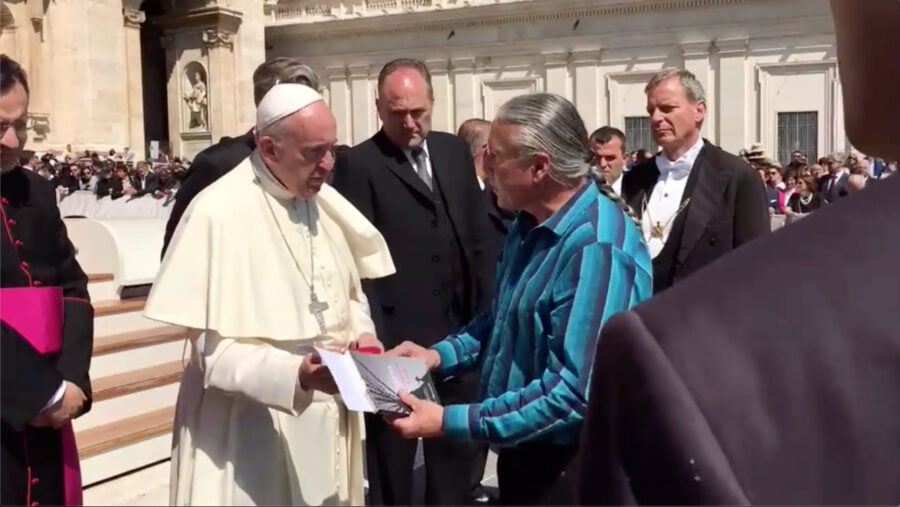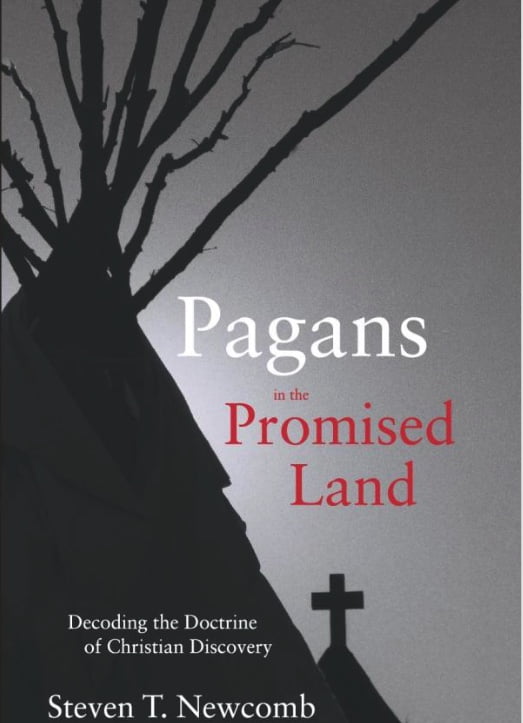Pagans in the Promised Land: Decoding the Doctrine of Christian Discovery decodes the hidden Old Testament basis of the Doctrine of Discovery and domination in U.S. Federal Indian Law and policy. The book traces the origin of the 1823 U.S. Supreme Court ruling Johnson v. M’Intosh to Vatican papal decrees of domination issued by various Catholic popes in the fifteenth century. Those documents claimed the right to locate and dominate non-Christian heathen lands, and Indigenous peoples throughout the planet. Pagans in the Promised Land is an expose which explains how the mentality of the Christian Empire gave birth to federal Indian law and policy in the United States, and continues on to this day.
From pages 112-113:
Why Indian Nations Continue to Be Rightfully Free
Today, the aggregate of ideas known as federal Indian law and policy posits that indigenous nations and peoples ceased being free as soon as Christian Europeans began mentally categorizing them as less than free. This presupposes, however, that indigenous nations and peoples are subject to the mental processes of the Christian Europeans, and it also assumes a particular understanding of causation: for, according to this viewpoint, the Christian European mental activity of categorizing and conceptualizing is tacitly considered the cause that has had the effect of “making” indigenous peoples no longer free and independent. But given our initial acknowledgment that the indigenous peoples were originally free and independent of the Christian Europeans both physically and mentally, from an indigenous perspective it follows that indigenous peoples were also rightfully free and independent of the Christian European mental activity of categorization and conceptualization. The Europeans could categorize and conceptualize to their hearts’ content, but the indigenous nations still remained rightfully independent of European ideas and judgments. In other words, according to this perspective it is impossible for the ideas and judgments of the Christian European mind to have caused indigenous peoples to no longer be rightfully free. Indeed, according to this view, the original independence of indigenous nations would permanently prevent Christian Europeans from ever legitimately making indigenous nations and peoples unfree by means of Christian European categorization and conceptualization.
These observations raise a curious paradox for the United States. Before one can presume, as the Johnson ruling does, that indigenous nations ceased being free and independent as a result of Christian European mental activity (categorization), it is first necessary to explain how originally independent indigenous peoples had become subject to the mental activities of the Christian Europeans to begin with. Once we posit that the indigenous peoples were independent of the mental activity of the Christian Europeans, then Christian European mental activity could not have caused independent indigenous peoples to be subject to Christian European mental activity. So then what caused indigenous peoples to cease being rightfully free and independent? The answer is nothing did. Indigenous nations and peoples continue to this very day to be rightfully free and independent of the United States and of the mental activity of U.S. government officials. However, federal Indian law is predicated on the view that the U.S. government has a legitimate plenary authority of dominion over American Indian nations on the basis of the “extravagant pretension” that Christian people discovered heathen lands during the so-called Age of Discovery.

